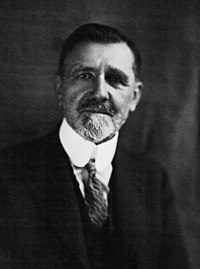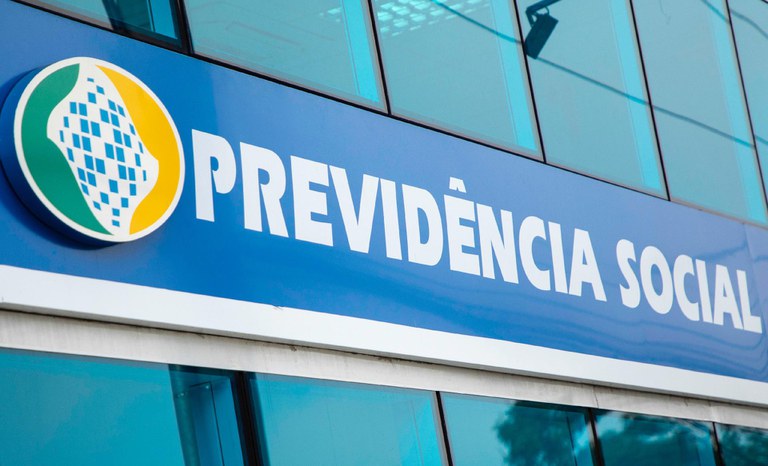| Émile Borel | |
|---|---|
| Émile Borel em 1932. | |
| Nascimento | 7 de janeiro de 1871[[Categoria:Predefinição:Categorizar-ano-século-milénio/1]] Saint-Affrique |
| Morte | 3 de fevereiro de 1956 (85 anos)[[Categoria:Predefinição:Categorizar-ano-século-milénio/1]] Paris |
| Nacionalidade | francês |
| Alma mater | Escola Normal Superior de Paris |
| Prêmios | Prêmio Poncelet (1901), Medalha de Ouro CNRS (1954) |
| Orientador(es) | Gaston Darboux[1] |
| Orientado(s) | Henri Lebesgue, Paul Dienes, Paul Montel, Georges Valiron |
| Instituições | Universidade de Paris |
| Campo(s) | matemática e política |
| Tese | 1893: Sur quelques points de la théorie des fonctions |
Félix Édouard Justin Émile Borel (Saint-Affrique, 7 de janeiro de 1871 — Paris, 3 de fevereiro de 1956) foi um matemático e político francês.
Juntamente com René-Louis Baire e Henri Lebesgue, foi um dos pioneiros da teoria da medida e suas aplicações à teoria da probabilidade. O conceito de um conjunto de Borel é nomeado em sua homenagem. Um de seus livros sobre probabilidade introduziu o engraçado experimento mental que entrou na cultura popular sob o nome de teorema do macaco infinito. Ele também publicou alguns artigos sobre teoria dos jogos.
Foi palestrante plenário do Congresso Internacional de Matemáticos em Cambridge (1912) e Bolonha (1928), e palestrante convidado do Congresso Internacional de Matemáticos em Zurique (1897), Paris (1900), Heidelberg (1904), Roma (1908: Sur les principes de la théorie des ensembles)[2] e Oslo (1936).
Além de uma cratera na Lua, as seguintes entidades são nomeadas em sua homenagem:
Obras
- On a few points about the theory of functions (PhD thesis, 1894)
- Introduction to the study of number theory and superior algebra (1895)
- A course on the theory of functions (1898)
- A course on power series (1900)
- A course on divergent series (1901)
- A course on positive terms series (1902)
- A course on meromorphic functions (1903)
- A course on growth theory at the Paris faculty of sciences (1910)
- A course on functions of a real variable and polynomial serial developments (1905)
- Chance (1914)
- Geometrical introduction to some physical theories (1914)
- A course on complex variable uniform monogenic functions (1917)
- On the method in sciences (1919)
- Space and time (1921)
- Game theory and left symmetric core integral equations (1921)
- Methods and problems of the theory of functions (1922)
- Space and time (1922)
- A treatise on probability calculation and its applications (1924–1934)
- Application of probability theory to games of chance (1938)
- Principles and classical formulas for probability calculation (1925)
- Practical and philosophical values of probabilities (1939)
- Mathematical theory of contract bridge for everyone (1940)
- Game, luck and contemporary scientific theories (1941)
- Probabilities and life (1943)
- Evolution of mechanics (1943)
- Paradoxes of the infinite (1946)
- Elements of set theory (1949)
- Probability and certainty (1950)
- Inaccessible numbers (1952)
- Imaginary and real in mathematics and physics (1952)
- Emile Borel complete works (1972)
Predefinição:Refend Predefinição:Div col end
Referências
Ver também
Ligações externas
- RedirecionamentoPredefinição:fim
Predefinição:Medalha de Ouro CNRS
| Precedido por — |
Medalha de Ouro CNRS 1954 |
Sucedido por Louis de Broglie |





 " class="attachment-atbs-s-4_3 size-atbs-s-4_3 wp-post-image" alt="O que estudar para o enem 2023">
" class="attachment-atbs-s-4_3 size-atbs-s-4_3 wp-post-image" alt="O que estudar para o enem 2023"> " class="attachment-atbs-s-4_3 size-atbs-s-4_3 wp-post-image" alt="Qual melhor curso para fazer em 2023">
" class="attachment-atbs-s-4_3 size-atbs-s-4_3 wp-post-image" alt="Qual melhor curso para fazer em 2023"> " class="attachment-atbs-s-4_3 size-atbs-s-4_3 wp-post-image" alt="Enem: Conteúdos E Aulas On-Line São Opção Para Os Estudantes">
" class="attachment-atbs-s-4_3 size-atbs-s-4_3 wp-post-image" alt="Enem: Conteúdos E Aulas On-Line São Opção Para Os Estudantes"> " class="attachment-atbs-s-4_3 size-atbs-s-4_3 wp-post-image" alt="Como Fazer Uma Carta De Apresentação">
" class="attachment-atbs-s-4_3 size-atbs-s-4_3 wp-post-image" alt="Como Fazer Uma Carta De Apresentação"> " class="attachment-atbs-s-4_3 size-atbs-s-4_3 wp-post-image" alt="Como Escrever Uma Boa Redação">
" class="attachment-atbs-s-4_3 size-atbs-s-4_3 wp-post-image" alt="Como Escrever Uma Boa Redação"> " class="attachment-atbs-s-4_3 size-atbs-s-4_3 wp-post-image" alt="Concurso INSS edital 2022 publicado">
" class="attachment-atbs-s-4_3 size-atbs-s-4_3 wp-post-image" alt="Concurso INSS edital 2022 publicado">


